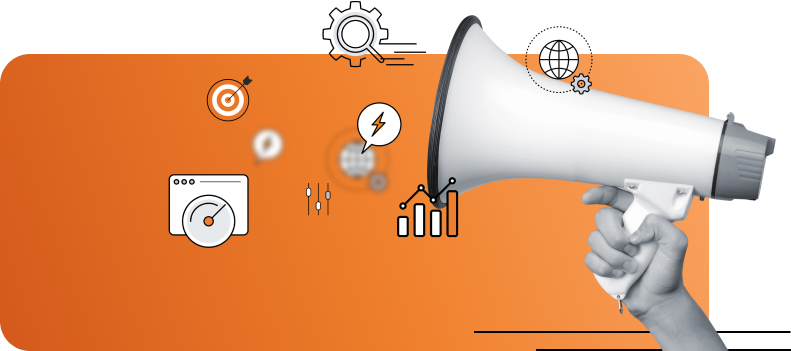Are you getting the most out of your customer relationships? A strong Customer Relationship Management (CRM) system can be a powerful tool in helping your business increase leads, boost sales, and improve relationships.
CRM systems are used for many applications, from tracking and managing customers to exploring potential sales opportunities. But how do you make sure that this powerful tool is working for your business?
In this blog post, we will go over what CRM stands for and why it is so important in today’s competitive market, as well as provide tips on leveraging its power to drive results and make connections that count.
What is Customer Relationship Management and Why it Matters to Your Business
What does CRM stand for in sales? CRM, also known as Customer Relationship Management, is an essential aspect of any successful business. This term refers to the strategies, processes, and technologies that a company uses to manage interactions with its customers.
What does CRM stand for in marketing? CRM focuses on building strong relationships with customers by understanding their needs and preferences and providing personalized experiences that meet those needs.
What does CRM software stand for? CRM is achieved through the use of software that tracks customer behavior and provides valuable insights into customer trends. Businesses that invest in CRM reap the benefits of:
- Increased customer loyalty
- Higher sales
- Hmproved brand reputation
If you are in the sales industry, you may wonder what does CRM stand for in sales? It is a tool that can revolutionize how you interact with your customers. In short, CRM stands for building strong and lasting relationships with your customers, and it is an important strategy for any business to adopt.
Strategies for Leveraging CRM to Build Stronger Relationships with Customers
In the ever-evolving business landscape, organizations must prioritize CRM to build and maintain strong bonds with their clients. What does CRM stand for in sales?
CRM, which stands for customer relationship management, is a business strategy that emphasizes the importance of understanding customer needs and providing personalized solutions to meet them.
CRM business definition is crucial in sales, as it effectively streamlines the customer acquisition process and fosters long-term loyalty.
By utilizing various strategies and tools, such as customer data analysis and targeted marketing campaigns, businesses can leverage CRM to establish deeper connections with clients and drive revenue growth.
Tips for Automating and Streamlining Your CRM Processes
CRM stands for Customer Relationship Management, which is a vital aspect of any successful business. What does CRM stand for in marketing?
CRM business definition refers to a set of strategies and processes that a company uses to manage and analyze customer interactions and data throughout the customer lifecycle. To streamline these processes, businesses need to automate their CRM.
What does CRM software stand for? This involves using software to automate workflows, data collection, analysis, and reporting. By doing so, businesses can improve their efficiency, enhance customer experience, increase sales, and save time and money.
To get started with automating and streamlining your CRM processes, you need to:
- Understand your business goals
- Identify your pain points
- Choose the right CRM software for your business needs
Ultimately, CRM automation can help you stay organized, proactive, and competitive in today’s ever-evolving business landscape.
How to Measure the Success of Your CRM Efforts
Now, what does CRM stand for in marketing? CRM business definition refers to the use of technology and strategies to monitor, manage, and analyze interactions with customers and potential clients.
It helps businesses build long-lasting relationships with their customers by offering personalized experiences, timely customer support, and targeted marketing efforts. The success of CRM efforts can be measured in several ways, including:
- Customer retention rates
- Sales growth
- Customer satisfaction levels
- Overall customer engagement
By tracking these metrics, businesses are better able to understand how their CRM efforts are impacting their bottom line and can make adjustments as needed to optimize their strategies.
What does CRM software stand for? CRM is much more than just a software program, it’s a central aspect of modern sales and business development.
Benefits of Using a Cloud-Based CRM Platform
In today’s competitive business landscape, companies must have an agile and efficient CRM strategy to stay ahead of the game. But what does CRM stand for in sales, and what is the CRM business definition?
CRM stands for Customer Relationship Management, which essentially refers to the processes and tools used to manage interactions with existing and potential customers. What does CRM software stand for? A cloud-based CRM platform offers a range of benefits such as:
- Access to real-time data and insights
- Flexibility
- Scalability
- Seamless collaboration.
With a cloud-based CRM platform, businesses can:
- Streamline workflows
- Centralized customer data
- Personalize interactions
- Drive revenue growth
By leveraging the power of cloud computing, companies can stay connected to their customers and stay one step ahead of the competition.
Key Takeaways from Implementing a CRM System
Implementing a CRM system in any business is a crucial step to streamline operations and improve customer relations. But what does CRM stand for in sales? It is a software system designed to manage interactions and relationships with customers.
The CRM business definition revolves around the improvement of customer satisfaction by efficiently managing customer interactions, automating processes, and organizing a unified database of customer information.
What does CRM stand for in marketing? CRM stands for “customer relationship management,” a term that has evolved to encompass the entire suite of technologies and strategies that businesses use to manage customer interactions. Key takeaways from implementing a CRM system is:
- Ability to boost sales and revenue
- Personalized marketing campaigns
- Targeted sales strategies
Overall, a CRM system’s implementation is a wise investment for any business looking to improve productivity, customer satisfaction, and profitability.
Customer Relationship Management (CRM) is a powerful tool for any business. You can drive more leads, boost sales, and improve relationships with customers.
As we have discussed throughout this blog post, it is important to recognize its capabilities and make use of strategies such as automating processes and measuring success to get the most out of your CRM system.
What does CRM software stand for? Utilizing a cloud-based platform in conjunction with proper execution will be critical in making the connections that count.
With these tools at your disposal, it should be much easier to improve customer relationships, increase sales, and grow your business. The time to act on these insights is now, what are you waiting for? Let’s unlock the true power of CRM and make connections that count!









